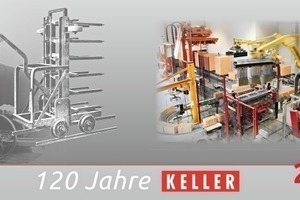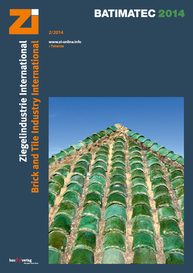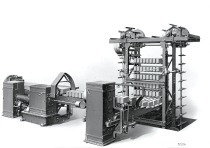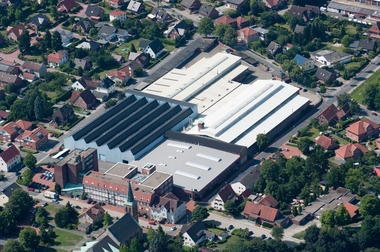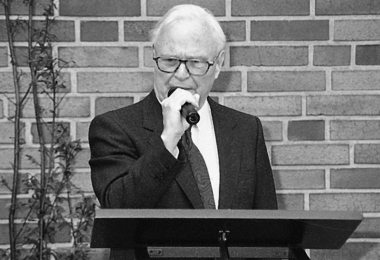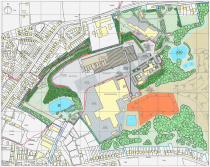Keller HCW celebrates 120th anniversary
It is with pride that the staff and also the community of Laggenbeck look back on the history and the development of “their Keller company” located in the centre of the village. The company started as a small workshop with revolutionary ideas. This was typical for the time around the turn of the century which produced many great inventors.
Carl Keller was the son of a simple farmer from the village and learned the baker‘s trade. With his technical talent, hard work and pioneering spirit, he developed the finger car for efficient stacking and handling of bricks on their way from the shaping plant to the drying systems. At that time, Carl Keller could not even guess that his invention would be a technical milestone in the mechanization of brick handling. More groundbreaking inventions by Carl Keller laid the foundation for the continuous growth and worldwide reputation of Keller in the heavy clay industry.
A prime example for the quality of Keller product designs is the brick cutter type 38, also known as the “small automated machine”. For decades it was regarded as the standard cutter in the worldwide brick industry. Today, 76 years later, the continuously improved universal cutter with its many different applications is the centrepiece for shaping a large variety of bricks in brick factories. “It keeps on running and running…” is what the engineers say. For the brick industry, the cutter is a proof of sophisticated technology and precision performed by the Keller engineers during many years.
For more than 90 years Keller was managed by the Keller family. The two sons of the founder Carl Keller, Joseph and Aloys Keller, were in charge of the company for more than 50 years. During that time, the family mastered many ups and downs. It was almost a miracle that the factory survived the Second World War practically intact, however, a quarter of the permanent staff did not return from the war. The strong personal commitment of both management and employees prevented the impending dismantling of the factory by the Allied Forces.
To this day, the continuous personal dedication of the management especially towards their employees still shows in many social aspects. Already in 1910, Keller founded a company health insurance scheme; a foundation for supporting retired employees and widows followed in 1927. In 1955, Keller acquired company-owned Volkswagen beetles and the employees were entitled to use them for private weekend trips. An active membership in the voluntary fire brigade in Laggenbeck and support for the local sports clubs were and are a matter of course for many members of the Keller family.
Thanks to the early orientation towards international markets (Carl Keller sold the first fully automated machine to Russia back in 1912), Keller has grown into a global player. By expanding its business activities to automation and measuring and control technology, Keller developed to a specialist in offering innovative solutions “from one source” to its customers. Striving for continuous process optimization and innovation was and still is the company‘s ambition and manifests itself in the company motto “Creating Solutions”. Approximately 370 employees are working today at the site in Laggenbeck alone. These include more than 30 apprentices, and their qualified training for technical and commercial jobs is a key concern of the management. Since 2006, the firm has belonged to the French Groupe Legris Industries. Together with the companies Novoceric, Rieter and Morando (Italy), also specialists in the heavy clay industry, it forms the Keller Division.
120 years after its founding, the company still has its focus of activity on providing machinery and equipment for the heavy clay industry. Additions to its portfolio are special logistics and handling solutions, automation technology and the measuring and controlling sector.

